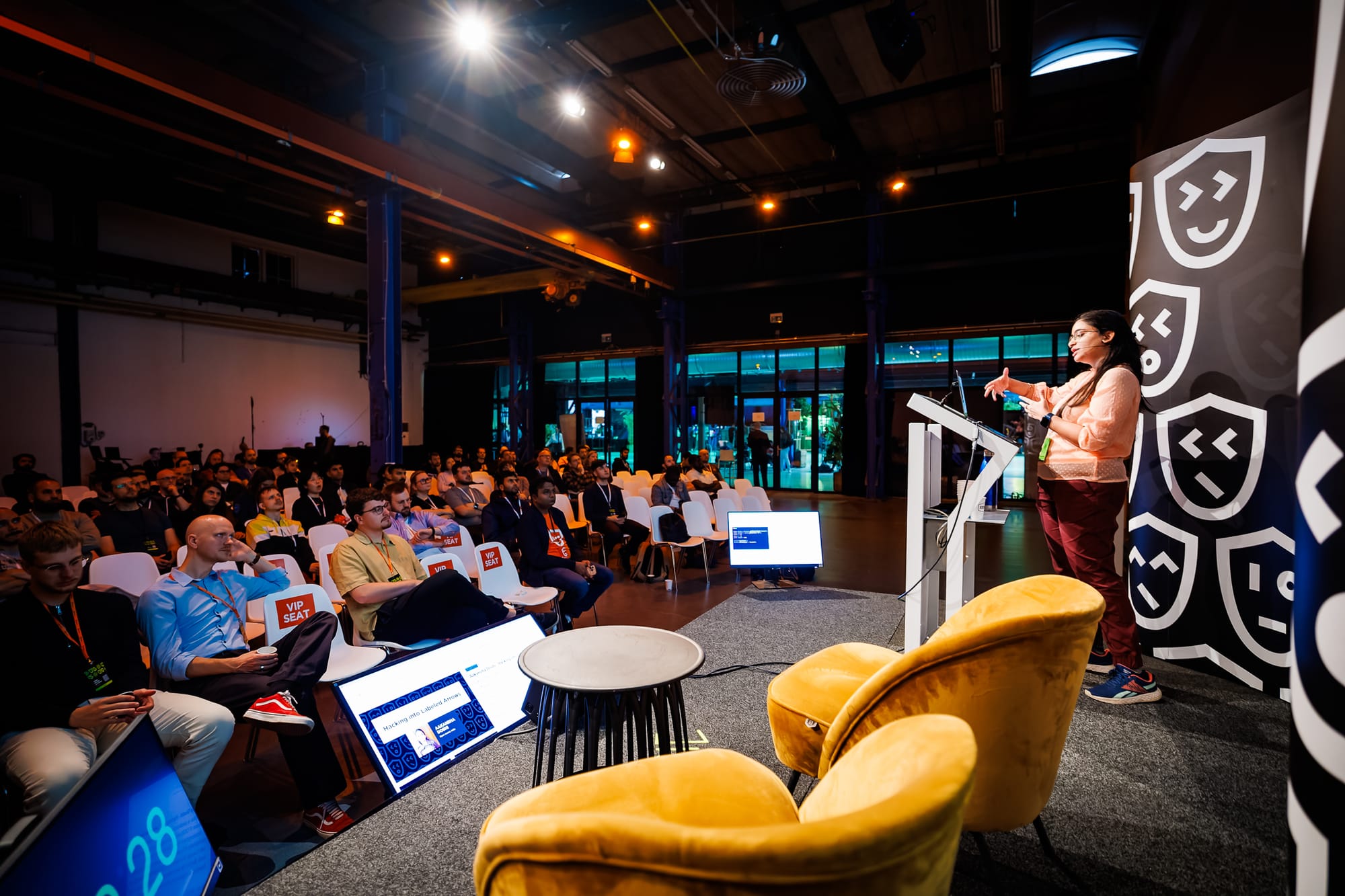How to Become a Speaker at a Tech Conference: Insights and Practical Tips

Imagine standing on stage at a major tech conference, your ideas resonating with a room full of professionals. Such events are not just a platform to share knowledge — it’s a powerful way to boost your professional profile, expand your network, and establish yourself as an authority in your field. But how do you go from idea to invitation? In this guide, we’ll walk you through the entire journey, from crafting a compelling proposal to captivating an audience.
This article draws on insights from React Summit speakers (Daniel Afonso, Rita Castro, Anuradha Kumari, Giorgio Boa and more) and program committee members (Aashima Ahuja, Konstantin Klimashevich and more), brought up during the “Public Speaking / How to Create a Good Talk Proposal” public discussion.
Whether you’re a seasoned developer or just starting out, these tips will help you take that first step towards the stage.
Decoding the CFP Process

The Call for Papers (CFP) is the primary method through which tech conferences invite potential speakers to submit talk proposals. Understanding this process is crucial to successfully getting your proposal accepted.
- Title and Abstract: Start by submitting a title and an abstract. Your title should be catchy and relevant, grabbing the program committee’s attention while clearly conveying the content of your talk. The abstract should succinctly outline the problem your talk addresses, the solution you propose, and the key takeaways for the audience.
- Detailed Description: Committee members often emphasize the importance of providing detailed descriptions. This section allows you to expand on your abstract, offering insights into your experience and explaining how your talk fits into the conference’s overall agenda. It’s also where you can differentiate yourself by highlighting your unique perspective or expertise.
- Additional Notes: Use any additional notes section to explain why you are the right person to present this topic. This is your chance to advocate for your talk by emphasizing its relevance.
Avoiding Common Mistakes
Here are several common pitfalls in crafting CFPs shared by our experienced speakers and program committee members:
- Overly Vague Abstracts: Your abstract should be specific. Avoid general statements and focus on delivering a clear message about what attendees will learn.
- Ignoring the Target Audience: A talk aimed at beginners in a conference geared towards advanced professionals is less likely to be accepted. Tailor your content to the right audience level.
- Neglecting the “more details” box in the CFP form: This is your chance to advocate for your talk. Use this space to explain why your talk is timely, relevant, and why you’re the best person to deliver it.
Crafting a Winning Proposal
- Tell a Story: Many successful proposals are framed as a narrative, often drawing from personal experience. This makes the content relatable and engaging.
- Highlight the Problem and Solution: Clearly define the problem your talk addresses and the solution you’ll present. This gives the committee a clear understanding of the value your talk will bring.
- Structure and Timing: Outlining the structure of your talk, including estimated timing for each section, can demonstrate your preparation and help the committee visualize your presentation. Add slides - even a very raw draft will help a lot.
Preparing for the Stage

Once your proposal is accepted, the real work begins. Preparing your talk involves several key steps:
- Content Development: Start by refining your content. Focus on key points you want to convey and support them with examples or demos.
- Slides Creation: Create slides that complement your speech without overwhelming the audience with too much text. Visual aids should enhance, not distract from your message.
- Practice: Rehearse your talk multiple times to ensure you stay within the time limit and are comfortable with the material. Practicing in front of a mirror, recording yourself, or doing a run-through with colleagues can provide valuable feedback.
- Managing Nerves: It’s natural to feel nervous before speaking. Techniques like deep breathing, drinking water, and reminding yourself of the importance of your message can help calm your nerves.
Engaging the Audience

One of the most critical aspects of successful public speaking is the ability to engage with the audience effectively.
- Focusing on Content Delivery: While the content of a presentation is undeniably important, how that content is delivered—and how the speaker interacts with the audience—can make the difference between a forgettable session and a truly impactful one.
- Creating an Interactive Environment: It’s important to create an interactive environment where the audience feels involved and invested in the topic. This can be achieved through various methods, such as incorporating live polls, encouraging questions throughout the presentation, or using storytelling techniques that resonate with the audience's experiences.
Bonus tips
Starting Small: Advice for First-Time Speakers
If you're new to public speaking, start small. Participate in local meetups or internal company presentations to build confidence. Remember, even entry-level talks have value, especially if they offer fresh perspectives or insights.
Handling Rejections
It's also important to understand that rejection is part of the process. Many experienced speakers have faced multiple rejections before being accepted. Use these experiences as learning opportunities and don’t be discouraged.
Ready to Become a Speaker? Take the Next Step!
Becoming a speaker at a tech conference is a rewarding experience that can elevate your career. By understanding the CFP process, avoiding common pitfalls, and preparing thoroughly, you can increase your chances of success. Remember, every expert speaker started somewhere—your journey begins with a single proposal.So don’t wait too long, submit your proposal to one of our upcoming conferences! https://gitnation.com/events
Good luck and see you at the GitNation stage!

